by Lisa Cooke | Nov 18, 2016 | 01 What's New, Adoption, Native American, Records & databases
Adoption of Washington State Native Americans records are now available for genealogical research. Also this week you can fill up on North Carolina school books, California land dockets, Florida newspapers, Canadian Aboriginal Peoples records, Lower Canadian census for 1825, and new additions to historic British newspapers.
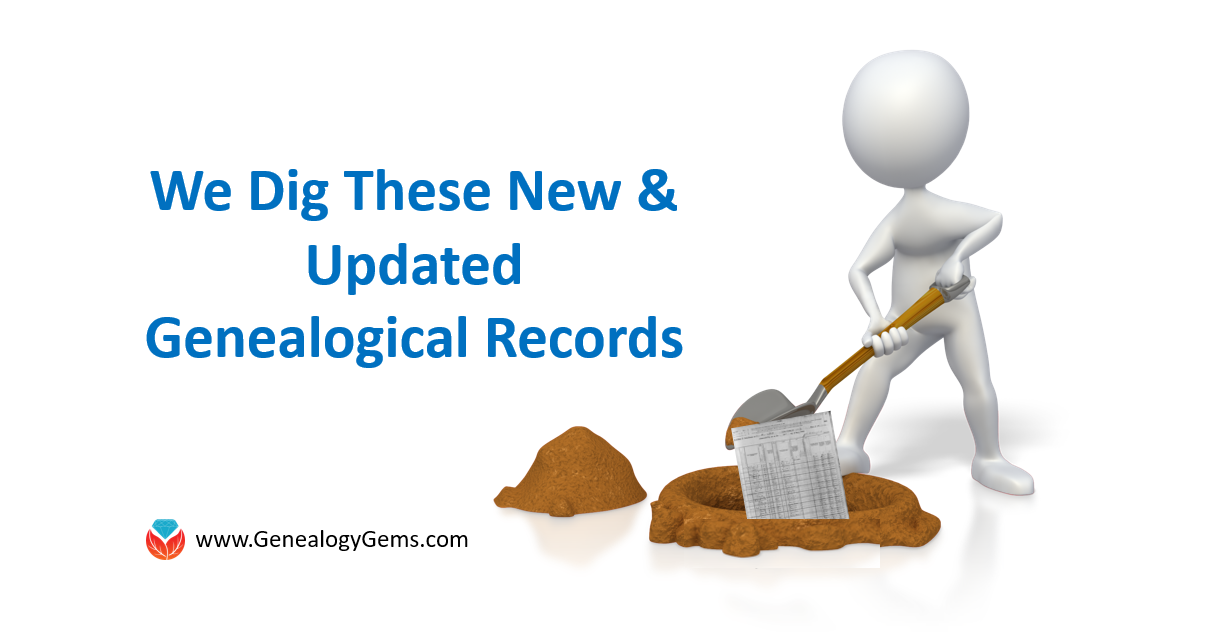
United States – Adoption of Washington State Native Americans
Washington, Applications for Enrollment and Adoption of Washington Indians, 1911-1919 is now available at FamilySearch.org. This collection consists of records created during the creation of the Roblin Rolls of Non-Reservation Indians in Western Washington. The enrollment and adoption proceedings of Indian tribes in Western Washington that were not on tribal census records makes this collection unique. It is arranged by tribal name claimed by the applicant, and then by applicant’s name.
Records may contain:
- English name of the primary individual or family members
- Indian name of the primary individual or family members
- Birth, marriage, or death dates
- Birth, marriage, or death places
- Place of residence
- Ages
- Number of children in the family
- Occupation
- Other biographical details about the family or individuals such as migrations
- Tribal affiliation
- Religious affiliation
- General information about the tribe
United States – North Carolina – School Books
North Carolina Digital Heritage Center features highlights from the collections at DigitalNC, an online library of sources from across North Carolina. This week, the archive has added almost 90 years worth of “BlueBooks” from St. Mary’s School in Raleigh. The years covered are 1911-2000.
St. Mary’s School was both a high school and a college. In particular, the Student Blue Books could be especially useful for genealogists or historians, as they document the names, activities, and some addresses of the students.
United States – California – Land Docket
Ancestry.com has
California, Private Land Claim Dockets, 1852-1858 available online. This record collection includes case files regarding private land claims in California. They are based on historical Spanish and Mexican land grants that took place before California became part of the U.S.
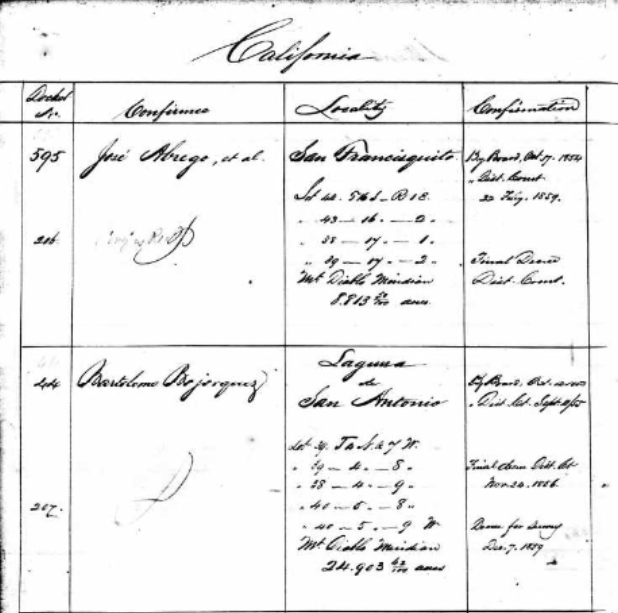
California, Private Land Claim Dockets, 1852-1858 for José Abrego at Ancestry.com
The purpose of these records was to show the actions taken regarding the claims after they were confirmed valid. Additional items within these case files include: notices and evidence of claims, certificate or plats of survey, affidavits, deeds, abstracts of titles, testimonies, appeals, and letters.
Each record in the index usually includes the name of the landowner, their docket number, and the record date.
United States – Florida – Newspapers
Do you have ancestors from Florida? Newspapers.com now has the Palm Beach Post. With a basic subscription, you can see issues of the Palm Beach Post from 1916 through 1922; or, with a Publisher Extra subscription, access earlier years and additional issues from 1922 to 2016.
Florida’s Palm Beach Post first began publishing in 1908 with the name Palm Beach County, and in 1916 (by this time called the Palm Beach Post) the paper made the switch from running weekly issues to daily.
Canada – Aboriginal Records
Library and Archives Canada added over 600 documents from the Royal Commission on Aboriginal Peoples recently. These records can be viewed at the Library and Archives Canada website.
These records include transcripts of more than 175 days of public hearings, consultations and roundtables; research studies by academics and community experts; and submissions by non-governmental organizations. Until now, patrons could only access this collection in person at LAC’s downtown Ottawa location, or by submitting a reprography request. This is a wonderful asset to the many helpful collections online for Canadian researchers.
Lower Canada – Census
The Lower Canadian Census of 1825 from Findmypast contains over 74,000 records covering modern day Labrador and southern Quebec. Each search result will provide you with an image of the original document and a transcript. Information may include the language your ancestor spoke, where they lived, and with how many people they lived. It does not name each of the inhabitants in the home by name, but they are marked by age.
1.2 million Irish immigrants arrived from 1825 to 1970 according to Wikipedia. The peak period of entry of the Irish to Canada in terms of numbers occurred between 1830 and 1850, when 624,000 arrived. Quebec was a port of entry. So, if you have Irish immigrants who you think may have come to Canada by 1825, this might be a great census for you to look at.
Britain – Newspapers
Over 1.5 million new articles have been added to the military publications available at Findmypast in their historic British Newspapers. The Naval & Military Gazette and Weekly Chronicle of the United Service are two of the new titles added. Additional articles come from the Army and Navy Gazette.
More on Native American Research Collections
This week’s records featured Adoption of Washington State Native Americans. But whether you are searching for your Native heritage in Canada, the Western United States, or the Southeastern United States, we know you want the best in education and helpful tips. We have created a three-part series regarding how to use the Native American collections on Fold3.com here:
Disclosure: This article contains affiliate links and Genealogy Gems will be compensated if you make a purchase after clicking on these links (at no additional cost to you). Thank you for supporting Genealogy Gems!
by Lisa Cooke | Nov 4, 2016 | 01 What's New, Records & databases |
Swedish-American newspapers are our first stop as we head off the beaten path. This week you’ll discover special record collections of Burke County, North Carolina yearbooks, photo images for Scotland, and State Militia records. Also this week, German civil registrations, Utah divorces, and lots of Irish goodies.

There are more online records than just those found at Ancestry, Findmypast, MyHeritage, or FamilySearch. Lesser known record collections pack a powerful punch to your family history research!
Swedish-American Newspapers
The Minnesota Historical Society has made some Swedish-American newspapers available online for the first time. This past week, Swedish-American Newspapers were made available through an online portal. Users can explore more than 300,000 pages from 28 different Swedish-American newspaper titles published across the U.S. between 1859 and 2007.
The portal is available in Swedish and English and includes a keyword search.
United States – North Carolina – Burke County – Yearbooks
The North Carolina Digital Heritage Center has a statewide digital publishing program located at the University of North Carolina at Chapel Hill. The center works to digitize and publish historic materials online.
Among their digital holdings, more than 60 years worth of yearbooks are now available to view online. The schools covered include:
Yearbooks provide enriching details into the lives of our ancestors and can be especially helpful in finding names of living family members!
United States – North Carolina – Militia
Also for North Carolina, the State Archives there have made their militia records, specifically the troop returns for the 18th and 19th centuries, available online.
The Troop Returns collection includes lists, returns, records of prisoners, and records of draftees, from 1747 to 1893. The majority of records are from the Revolutionary War, North Carolina Continental Line.
Militia records generally include the names of officers and soldiers, and are usually organized by district or county. Continental line records include field returns, general returns, draft records, and enlistment records.
This collection is a work in progress. As more records are digitized, they will become view-able online. In the meantime, see what’s there by checking out a helpful index in pdf form here.
Canada – Books
Though these new books added to the shelves of the Library and Archives Canada are not online, the information may be of value to you. Several new books are available to view in-person at the Library and Archives Canada.

Some of the new listings include:
Obituaries from the Christian guardian, 1891 to 1895, by Donald A. McKenzie (AMICUS 42197735)
American loyalists to New Brunswick: the ship passenger lists, by David Bell (AMICUS 43913838)
The link to the AMICUS record gives the call number you need to find the book on the shelves.
Baptisms and marriage books for several churches also are among the new publications. For a complete listing of the new books, click here: https://thediscoverblog.com/2016/10/28/new-books-in-the-genealogy-services-collection-at-395-wellington-october-2016/
Germany – Civil Registrations
New this week at FamilySearch.org are the Germany Bavaria Nuremberg Civil Registration 1803-1886 collection. This record set is an index only of over 1.2 million civil registrations.
The collection includes birth, marriage, and death records from Nuremberg.
Birth records may include:
- Name of child
- Names of parents
- Place of residence
- Gender
- Date of birth
Marriage records may include: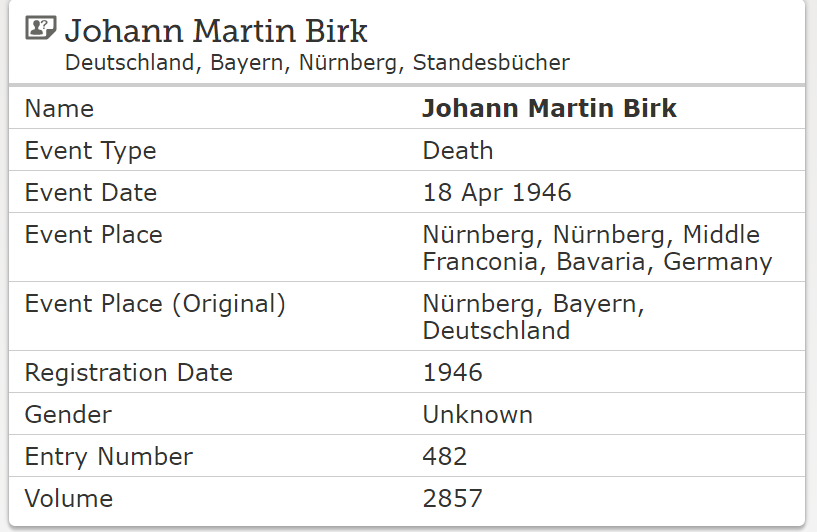
- Name of bride and groom
- Place of residence
- Name of bride’s parents
- Name of groom’s parents
- Groom’s date of birth and birthplace
- Bride’s date of birth and birthplace
Death records may include:
- Name of deceased
- Age at death
- Place of residence
- Date of death
United States – Utah – Divorce Records
Findmypast has added Utah Divorces to their collections. More than 177,000 records from Utah district courts cover the years of 1997 to 2016. Each result includes a transcript that will reveal the date the divorce was filed, the petitioner, respondent, attorney, case type, and the judgment that was reached.
Ireland – Cavan – Registers
Cavan Registers & Records currently includes only one title named “Crosserlough Census Index 1821.” The 1821 census of Crosserlough, County Cavan, was taken on 28 May 1821. The Four Courts fire in Dublin destroyed the original census documents, but a copy was made prior to this.
There are near 8,000 individuals listed in the 1821 census. Each entry records an individual name, age, occupation and relationship to the head of household.
Ireland – Kilkenny – Registers
Kilkenny Registers & Records are presented as PDFs. The collection includes the Castlecomer Census Index 1901 compiled in 2000 by Tom Delany.
The publication is a summary of the population of Castlecomer in 1901. It lists the names, ages, and occupations of the all the inhabitants. On image number 204 is the beginning of an index of all the names found in the publication to help you.
Ireland – Dublin – Registers
Ten new publications have been added to the collection of Dublin Registers & Records. These new items include school registers, district and street censuses, business directories, and monumental inscriptions. The collection also includes parish records from the Church of Ireland.
Ireland – Newspapers
Over 1.7 million new articles have been added to the historic Irish Newspapers collection. New additions have been made to existing titles including The Irish Times and The Weekly Irish Times.
Newspapers can be searched by time-frame, place, county, and newspaper title.
Scotland – Leith – Photographs
A picture is worth a thousand words, or maybe in this case, a thousand records! A rare collection of photographs from the 1920s in Leith, Scotland is available to view online. This collection was digitized by Edinburgh University.
Though most of the images are of buildings and streets and not well labeled, if you are familiar with the area, something might stand out to you. Take a stroll down memory lane of yesteryear in Leith Scotland by clicking here.
More Gems on Researching Newspapers for Genealogy

Available at www.shopgenealogygems.com
This week we explored Swedish-American newspapers as well as some from Ireland. Perhaps you are in search of newspaper elsewhere in the world. Lisa Louise Cooke presents everything you need to know about How to Find Your Family History in Newspapers. This exceptional book is packed with information on how to find and utilize newspaper collections. Available in book and e-book, you will find
- Step by Step Instructions
- Worksheets and Checklists
- Tons of Free Online Resources
- Websites that are worth Shelling Out a Few Bucks For
- A Massive Amount of Location Specific Websites (International)
- A Case Study that Puts It All to the Test
by Margaret Linford | Jan 31, 2018 | 01 What's New, Court Records, Research Skills |
Using wills and probate records for genealogy can lead to unexpected “inheritances” of your own: clues about relatives’ identities, wealth, personal belongings, and family relationships. Wills can reveal great family stories, too: researcher Margaret Linford entertains her mother with them during trips to the courthouse. Here’s how wills can help your family history—and Margaret’s tips for finding and using them.
Using Wills and Probate Records in Genealogy Research
“Where there’s a will, there’s a way” to find out more about your family’s history.
Wills are legal records created to direct the settlement of a person’s property and other final affairs after his or her death. Probate (or estate) records are created after an individual’s death as part of the legal distribution of the estate and payment of debts. You’ll often find wills as one of many kinds of the documents included in probate records.
Wills and other probate records are valuable research tools, but are frequently neglected as sources of genealogical information. People often focus strictly on birth, marriage, and death records when searching out their family histories. If you rely solely on those records, your research will encounter many brick walls in the early 1800’s.
Probate records and land records were often the only official documents left behind to tell the stories of ancestors who lived prior to the legal requirement for the registry of births and deaths.
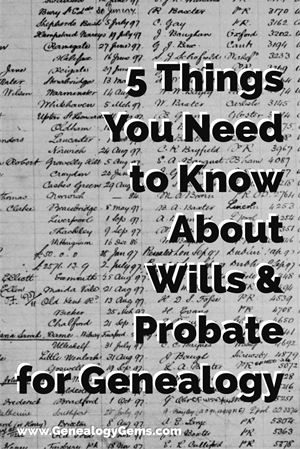
Wills of slaveholders can also be valuable tools in conducting African-American genealogical research. Before the Civil War, enslaved people were listed in wills because they were valuable property of slaveholders.
For instance, in the 1863 Smyth County property tax records, it is noted that Abijah Thomas owned 56 slaves, which were valued at $53,800. Some were given their freedom within wills, while others were transferred to other members of the family or sold. For instance, one of the first wills recorded in Smyth County is that of Hugh Cole.
Within his will, he says the following: “I bequeath to my beloved wife Martha Cole a negro girl named Amanda which she is to hold during her natural life.” The mention of an enslaved person in a will—along with any personal description of him or her—may be the only surviving document to mention that person by name.
Within another Smyth County will, recorded on February 20, 1835, a woman named Elizabeth Blessing left the following directive: “I will and desire that my negro woman Betty be free at my decease, and must see to her own support during her life, as I shall not make any provision for her out of any part of my estate.”
Information Found in Wills Varies
You can find just about anything in a will!
One organ, one compass, chain and plotting instruments, two chests, one hat rack, one music rack, one old United States map. These are some of the items found in the appraisement bill of the personal property belonging to the estate of Abijah Thomas, who lived in the well-known Octagon House in Marion, Virginia.
Here is a photo of that home, now in a dilapidated state, from a Wikipedia file image (click image for attribution.)

Also included in his personal property is a church bell. The story behind the bell is intriguing and illustrates the significance of the probate process.
Abijah Thomas utilized the bell at his foundry works in Marion, Virginia, to indicate shift changes. For decades, the oral history surrounding the bell indicated that he had donated it to the Wytheville Presbyterian Church before he died. The court documents reveal a different story.

Court document regarding the church bell
Since Abijah died intestate, the court appointed three men to appraise his personal property. During this process, the bell was valued at $75. It was sold on September 1, 1877, to the Presbyterian Church in the town of Wytheville, Virginia, as shown in the above list of items sold from his estate.
This document dispels the family myth surrounding the church bell. This is just one of many examples of the types of stories you find in probate records in courthouses all across the United States.
Genealogical Information May be Found in a Will or Probate Records
Wills and probate records can pass along unexpected genealogical wealth to you. You may find the following information in them: date of death (or approximate date of death), name of spouse, children, parents, siblings and their place of residence, adoption or guardianship of minor children, ancestor’s previous residence, occupation, land ownership, and household items.
Probate records also contain such interesting stories that they can even be read for entertainment!
Whenever I go on a research trip, I usually drag some poor, unsuspecting soul along with me. That person is usually my Mom. While she enjoys the scenery on our drive to different courthouses, she rarely enjoys the time spent at the courthouse.
Some of the research I do requires me to stay at the courthouse for several hours. That has posed a problem in the past since I haven’t known how to keep Mom occupied. But I have found the perfect solution. When we arrive at the courthouse, I find an old will book and let her start reading.
My mom enjoys reading the stories in these old—and sometimes tattered—books. One of her favorite stories came from a will in Henry County, Virginia. It is the will of Addie T. Thornton and reads as follows:
“I also give to my nephew Thomas T. Earles, fifty ($50) in cash to be deposited in some safe Banking Institution, on interest until he arrives at the age of twenty-one (21) years old and then the principal to be invested in a watch and I request that a monogram with both his and my name, one on inside and the other on outside of watch.”
Obviously, Addie Thornton cared deeply for her nephew, Thomas, and wanted to make sure he remembered her for the rest of his life.
Here’s part of Addie’s will, followed by a closeup image of the lines about the watch:
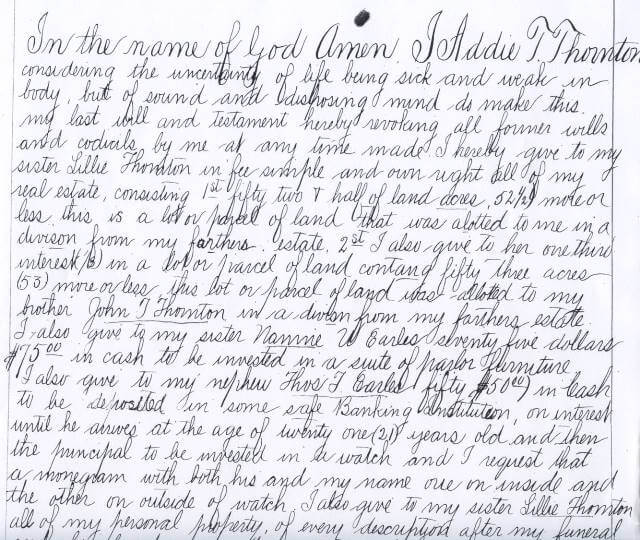

Stories like these are so much more meaningful than just a date of birth, marriage or death. Wills can help us know who these people were, how they lived and what was important to them during their sojourn here on earth. We can learn of their struggles and their successes. We can tell what their lives were like by reading through the lists of household items included in the inventories that are recorded.
And with stories like Addie’s bequest of the watch, we can also learn about ancestors’ personalities and how they expressed (or occasionally withheld) love for others through the final disposition of their belongings.
How a Will is Created
Before beginning probate record research, it is important to be familiar with the probate process and legal terminology associated with these records. It is estimated that, prior to 1900, about half of the population either left a will or was mentioned in one. Those who died having left a will are said to have died “testate.” Those who died without leaving a valid will died “intestate.”
A typical, legally-recognized will contains certain critical elements. It should be in written form and it must have signatures of the person leaving the will (“testator”) and witnesses, who attest to the validity of the document. A codicil is a document created by the testator to amend the will.
Once the testator dies, the will is presented to the judicial authority by a family member or executor/executrix (person appointed by the testator to see that his/her wishes are carried out), accompanied by a written application or petition for probate.
These petitions include names and addresses of the closest living relatives. The court then admits the will to probate and sets a hearing, providing an opportunity for interested parties to contest the will. The will is then recorded and the executor is given the authority to settle the estate. During this process, an inventory of the estate is made.
Some wills contain detailed information, regarding the testator’s final wishes. At times, these requests will shed light on relationships that might not otherwise be discovered. This was the case for a will on file at my local courthouse. Due to the nature of the requests made by the testator, I have changed the last name of the family to Smith. This wife was, obviously, upset with her husband and the circumstances of their marriage, providing clear details of her grievances for future generations.
“Since my husband has never made me a part of his family and has completely cut me out of ever living in Chihowie, Virginia [the husband’s hometown], or never provided me with a home or paid any of my bills and has broken all marriage contracts that we agreed to—I hereby decree that I be buried in Round Hill Cemetery at Marion, Virginia, where I own a lot—that my body or anything I own or possess will never be taken into Chilhowie or the Smith household.
My husband has never taken me into his own home, and furthermore stated, backed up by his nephew and his wife, whom he turned everything over to shortly after our marriage—that I would never own or live on a foot of the Smith ground, even though I have tried to build or buy or remodel a home in Chilhowie, Virginia, at my own expense.
“I give all books and material things pertaining to books to the Smyth County Library, Marion, Virginia, as I am sure that my family would not want anything to fall into the hands of anyone who has mistreated me.
“My husband has kept our marriage strictly on a time clock basis since his nephew and his wife moved back to Smyth County, and under their influence he comes at 6:30 or 7:00 p.m. (whichever is convenient to them) or later, and leaves promptly in the morning by 8:00 or 8:30 a.m., never calling during the day or show[ing] any sign of caring. He changed completely after they returned to Chilhowie to break up the marriage. Therefore, if I am still his wife, or otherwise, see that my wishes are carried out and that my remains and possessions remain in Marion.”
Where to Find Wills and Probate Records
The best place to search for a will is at the courthouse where your ancestor lived, if you can reasonably go there yourself.
Since the probate process is a function of state governments, the laws governing the maintenance of these records and their location will vary by state and should be researched before making a trip to the courthouse.
For example, in Virginia, probate records are maintained within the Circuit Courts and independent cities. In Massachusetts, probate records are found in county Probate Courts.
A useful resource for figuring out how U.S. probate records are organized state-by-state is free on the Ancestry.com wiki: Red Book: American State, County and Town Sources. Scroll down to click on the name of the state in question. Then go to the right side and click on the probate records link for that state to read about these records.
Once you have determined where the wills for your state/county are housed, the next step in the research process is to locate the Index for Wills. Even–perhaps especially–if you are unsure of the date of death for one of your ancestors, you may want to look through the index of wills (an example is shown here). Even when no specific death record exists, you may be surprised to find probate records that reveal the date of death, a list of heirs and more.
There will, most likely, be several index books, organized by year spans. These books serve as a compass, pointing you to any available probate records that may include your ancestors. The index is divided by devisor (the person making the will) and devisee (any person who is named in the will, as the recipient of property).
The research process will be incomplete if you do not conduct a search for your ancestors among the list of devisees. Even if you fail to find their names among the devisors, they could have inherited property from someone else.
Probate records include more than just the will of an individual. You may find letters of administration, lists of heirs, inventories, bills of appraisement, guardianships and other documents related to the settlement of an estate. In some counties, all these documents are found in the same collection. Other counties maintain these records in separate collections. It is important to understand the manner in which probate records are organized for your particular county.
The probate research process should not be rushed. Valuable records may be overlooked when time dictates the quality of your research. For this reason, it is important that you set aside ample time to comb through the probate records. If you find yourself confused about abbreviations or the location of records within the courthouse, there is usually someone in the records vault who would be happy to assist you. Never be afraid (or embarrassed) to ask for help.
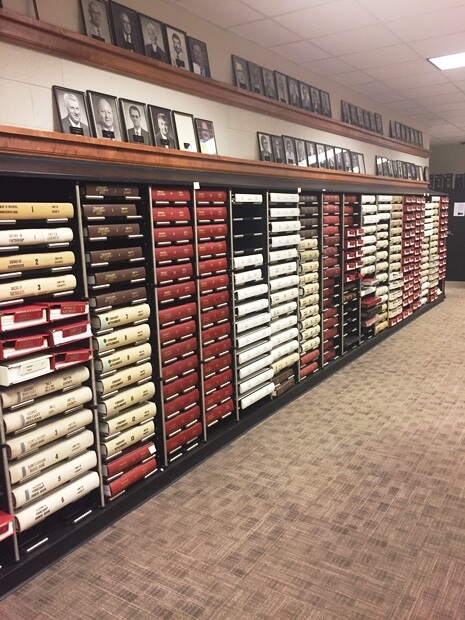
Fortunately for many of us who can’t easily get to every ancestor’s courthouse, there are some wills available online on genealogy websites, including two of the genealogy giants, FamilySearch and Ancestry.com.
For example:
- Subscription website Ancestry.com has made it a priority to curate an enormous collection of wills and probate records from all 50 states. At last count, this collection has more than 170 million records—and they keep adding to it.
- The free FamilySearch.org hosts millions of probate records from the U.S. and around the world (click here to browse their probate and court record collections). Many of these collections are marked “browse-only,” which means they are not yet searchable by name online. You just have to page through them. Click here for instructions on reading browse-only records on the site (it’s not that difficult—and did I mention they’re free?).
Additionally, libraries or genealogical societies in your ancestor’s hometown or county may have books with abstracts from local wills or other resources related to local probate record research.
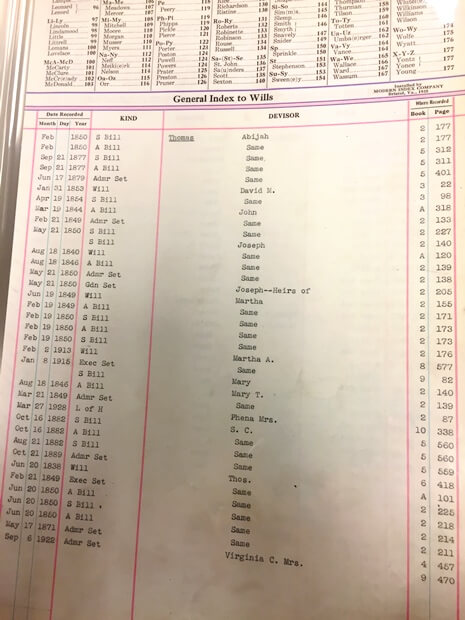
General Index to Wills
Well Worth the Effort
Finding the will of one of your ancestors is an amazing experience. Walking into the vault of a courthouse sometimes feels like walking into a time machine. As you read through the pages that tell of people who lived so long ago, you feel like for even just a small moment that you have gone back in time. You are sitting with them and hearing their stories whispered through the aging and brittle pages that have been left behind. They are all there just waiting to tell their stories. So take the opportunity to go to the courthouse and “meet” your ancestors through the one of the last—and perhaps one of the most revealing—documents they may ever have written: their wills.
Researching Wills and Probate Records: Your Next Steps
Take your genealogy research to the next level by planning a trip to a courthouse to retrieve records like wills and probate records. These articles and podcast episodes will help you get ready:

Disclosure: This article contains affiliate links and Genealogy Gems will be compensated if you make a purchase after clicking on these links (at no additional cost to you). Thank you for supporting Genealogy Gems!

Margaret Linford is a professional genealogist who specializes in the Mid-South Region of United States research and has logged over 20,000 research hours. Born and raised in Virginia, she has enjoyed traveling the world, and now lives in her childhood hometown with her husband and children. She enjoys teaching her children about heritage, taking them along on research trips and serving as President of the Smyth County Genealogical Society.
















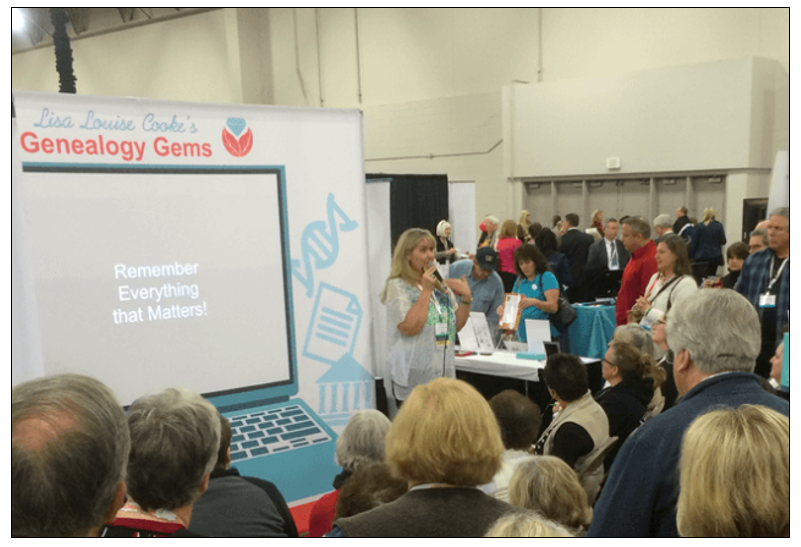 aVar Burton is the first RootsTech Keynote Speaker to be announced for 2017. More speakers will be announced over the coming weeks.
aVar Burton is the first RootsTech Keynote Speaker to be announced for 2017. More speakers will be announced over the coming weeks.